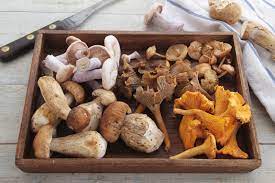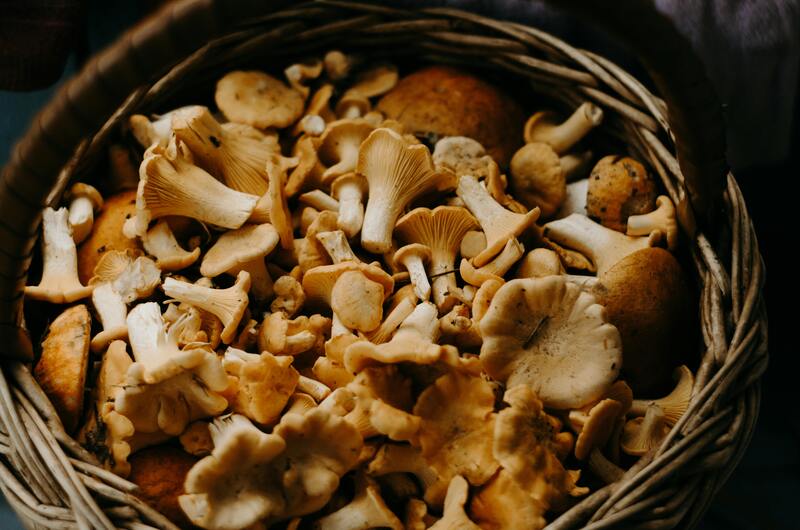Magic mushrooms, or psilocybin mushrooms, are often associated with their hallucinogenic effects and recreational use. However, these natural fungi possess medicinal properties that extend far beyond their psychoactive reputation. With ongoing research and growing public interest, the medicinal potential of magic mushrooms is gaining recognition in the scientific and wellness communities. This blog post explores the broader therapeutic uses of magic mushrooms, highlighting their benefits for mental health, cognitive enhancement, and overall well-being.
The Active Compound: Psilocybin

The primary compound responsible for the effects of magic mushrooms is psilocybin. When ingested, psilocybin is converted into psilocin, which interacts with serotonin receptors in the brain. This interaction influences mood, perception, and cognition, which is why magic mushrooms have historically been used for spiritual and shamanic rituals.
Mental Health Benefits
1. Depression and Anxiety Relief
One of the most promising areas of research is the use of psilocybin for treating depression and anxiety. Clinical trials have shown that psilocybin-assisted therapy can lead to significant reductions in symptoms for patients with treatment-resistant depression. Unlike traditional antidepressants, which must be taken daily, psilocybin treatments have demonstrated lasting effects after just one or two sessions.
Supporting Evidence: A study conducted by Johns Hopkins University found that patients who received psilocybin therapy experienced substantial relief from depression, with effects lasting up to six months or longer.
2. PTSD and Trauma Processing
Magic mushrooms are also being studied for their potential to aid individuals suffering from post-traumatic stress disorder (PTSD). Psilocybin’s ability to enhance neural connectivity allows patients to revisit traumatic memories with reduced emotional reactivity, facilitating healing and desensitization over time.
How It Works: By reducing activity in the brain’s default mode network (DMN), psilocybin helps individuals break free from repetitive, negative thought patterns associated with trauma.
Cognitive Enhancement and Brain Health
1. Increased Neuroplasticity
Psilocybin has been shown to promote neuroplasticity, which is the brain’s ability to reorganize and form new neural connections. This is crucial for learning, memory, and adapting to new experiences. Enhanced neuroplasticity may lead to improved cognitive function and resilience against age-related cognitive decline.
Potential Applications: Preliminary studies suggest that microdosing psilocybin—taking sub-hallucinogenic doses—may boost creativity, focus, and problem-solving abilities by stimulating new neural pathways.
2. Treatment for Neurodegenerative Diseases
Early research indicates that psilocybin might have potential benefits for treating neurodegenerative conditions such as Alzheimer’s and Parkinson’s disease. By fostering neural connectivity and reducing inflammation, psilocybin could help slow the progression of these disorders and improve patients’ quality of life.
Emotional and Psychological Benefits
1. Enhanced Emotional Regulation
Psilocybin therapy has been associated with improved emotional regulation, helping individuals better understand and process their emotions. This effect is especially beneficial for those dealing with emotional instability or disorders characterized by mood swings.
Case Study: Patients undergoing psilocybin therapy often report feeling a deeper sense of connection to their emotions and surroundings, fostering empathy and self-compassion.
2. Reduction in Addictive Behaviors
Psilocybin’s impact on serotonin receptors also shows promise for treating addiction. Studies have shown that it can help reduce cravings and withdrawal symptoms, making it a potential tool for addressing substance use disorders.
Notable Results: In one pilot study, individuals undergoing psilocybin therapy for smoking cessation reported abstinence rates of over 80% after six months, far surpassing the success rates of conventional treatments.
Safety and Considerations
1. Safe Use and Controlled Environments
While psilocybin has numerous potential benefits, it should be used responsibly and preferably under the guidance of trained professionals. Psychedelic-assisted therapy is typically conducted in controlled settings to ensure the safety and comfort of the patient.
2. Side Effects and Risks
Although generally considered safe, psilocybin can have side effects, including nausea, dizziness, and, in rare cases, temporary psychological distress. These effects are often minimized in a therapeutic setting where patients receive proper support.
Legal and Future Perspectives
The legal status of psilocybin varies worldwide, but recent developments point toward a more accepting future. In some regions, psilocybin has been decriminalized or approved for therapeutic use, reflecting a shift in public perception and policy. As more research unfolds, the potential for magic mushrooms in mainstream medicine becomes increasingly promising.
The Path Ahead: With ongoing clinical trials and positive preliminary results, the integration of psilocybin into medical practice could revolutionize how we approach mental health treatment, cognitive enhancement, and emotional well-being.
Read Also : Shrooms vs. LSD: Key Differences in Effects and Experience
Conclusion
Magic mushrooms are more than just a psychedelic experience; they represent a natural and powerful ally in the pursuit of mental health and cognitive wellness. With growing research supporting their benefits, psilocybin may soon become a staple in therapeutic practices, offering hope and healing to those in need. While challenges remain, the potential of magic mushrooms as nature’s healers is too compelling to ignore.
As we continue to explore their uses, one thing is clear: magic mushrooms are not just for altering perception—they hold the key to unlocking deeper emotional, psychological, and cognitive health.

